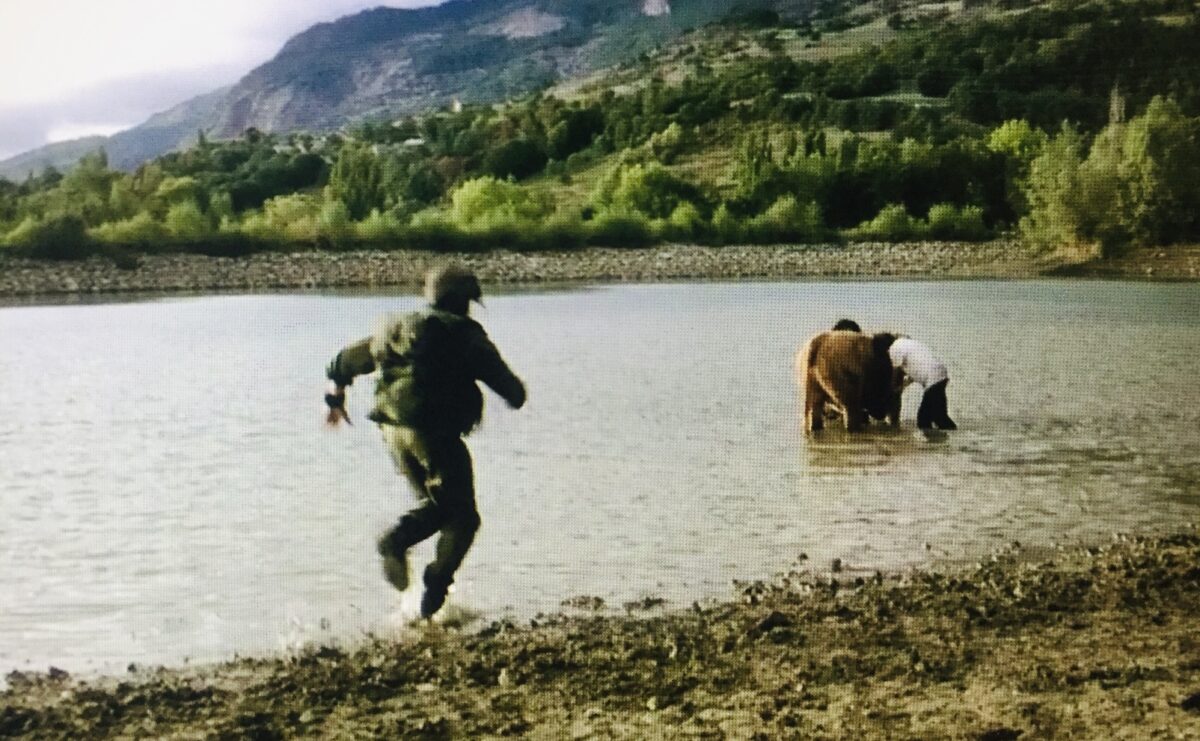Alain Sauma’s satirical short film, Blue Line, focuses on a flashpoint in the Middle East, Israel’s sometimes volatile border with Lebanon.
Currently being presented online by the Toronto Jewish Film Foundation, this movie turns on a beefy Lebanese cow that strays into Israel, setting off a burst of excitement and anxiety on both sides of the fraught frontier.
The Lebanese border was quiet until the 1967 Six Day War. But when the Palestine Liberation Organization set up military bases in southern Lebanon as platforms from which to attack Israel, tensions rose exponentially.
In response, Israel’s armed forces struck Lebanon, which Israeli experts had optimistically regarded as the second Arab country that would make peace with Israel. The situation went from bad to worse when Israel attacked Lebanon on a massive scale in Operation Litani in 1978. The fighting was followed by the creation of the United Nations Interim Force in Lebanon, a peacekeeping unit manned today by 10,000 troops from 46 nations.
Four years later, Israel launched a full-scale invasion of Lebanon, and did not withdraw from Lebanese territory until 2000. At this point, the United Nations demarcated Israel’s border with Lebanon. It was dubbed the Blue Line.
Israel and Hezbollah fought a month-long war in 2006. Since then, Israel and Hezbollah have clashed periodically.
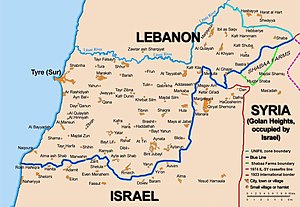
Blue Line, which is about 22 minutes in length, unfolds during a tranquil period along the border. But when Lalita, a Lebanese cow tended to by a shepherd, ventures into a pond in Israel, beyond the Blue Line, United Nations peacekeepers from India and Israeli soldiers immediately spring into action.
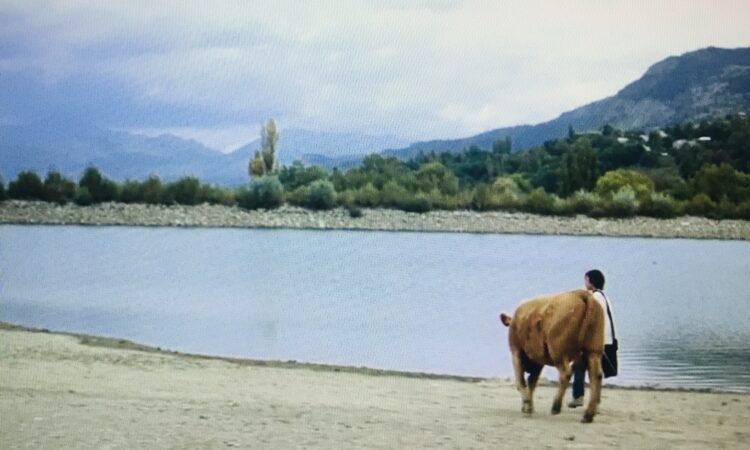
Amid the commotion, the Indian troops scour the surroundings, while an Israeli soldier speculates that Hezbollah — the Lebanese Shi’a militia supported by Iran — may be planning an operation. He adds that Lalita may be a “kamikaze” cow.
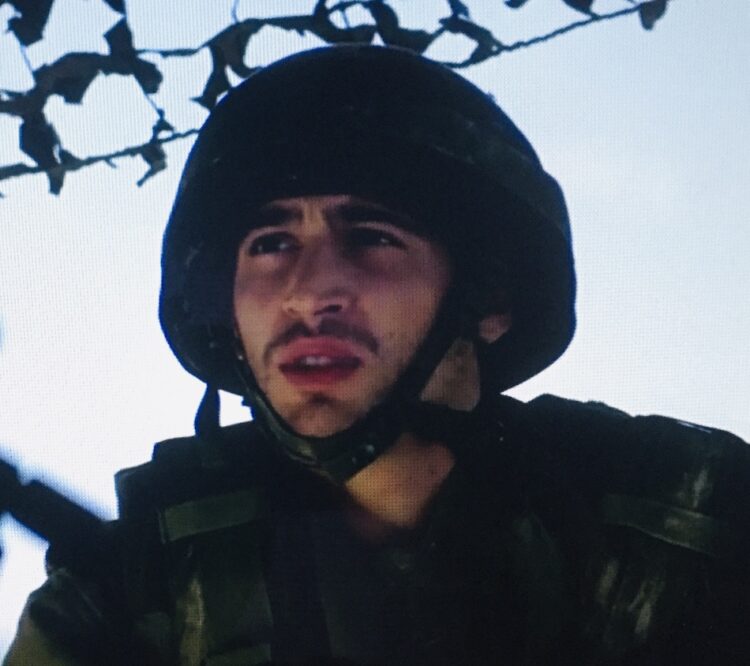
Worried that the incident may spin out of control, the Israeli soldier holds aloft a yellow flag warning the Lebanese shepherd to return to Lebanon at once.
“We can’t have a war over a cow,” shouts the Indian commander, who seems to be more interested in his supper than in the evolving situation.
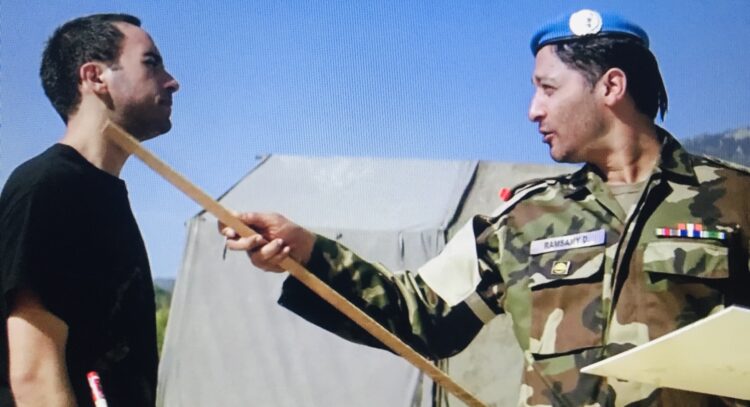
With everyone’s nerves on edge, an Indian soldier brandishes a placard reading, “Allow the shepherd to get his cow back.” Being a Hindu who reveres cattle, he fears that the Israelis may shoot the cow.
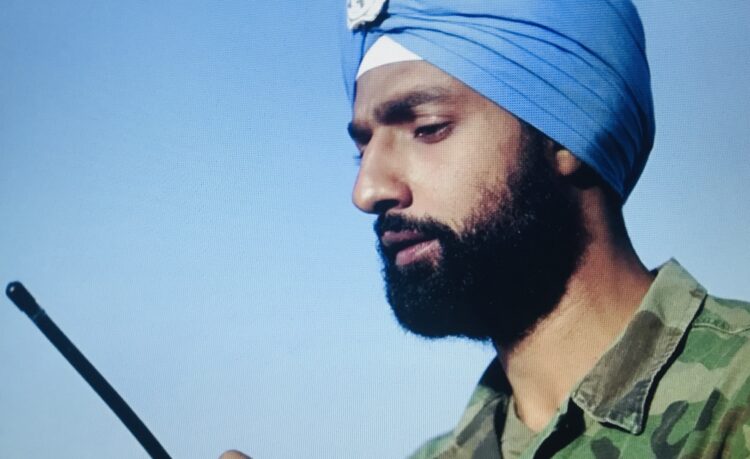
In a desperate attempt to calm things down, one of the Indian troops, a Sikh wearing a turban, rushes down to the pond. He’s joined there by an Israeli soldier who feels sorry for the cow. Both soldiers, assisted by the shepherd, try to push the beast out of the water and across the Blue Line back into Lebanon.
Shots are fired from an unidentified source, prompting Lalita, the shepherd and both soldiers to leave the pond. Mercifully, peace returns to this sector of the border.
Blue Line gently pokes fun at Israel’s perennial conflict with Hezbollah, whose operatives are never seen during the course of the film. More seriously, it reminds us that a clash between these enemies can erupt when least expected.
